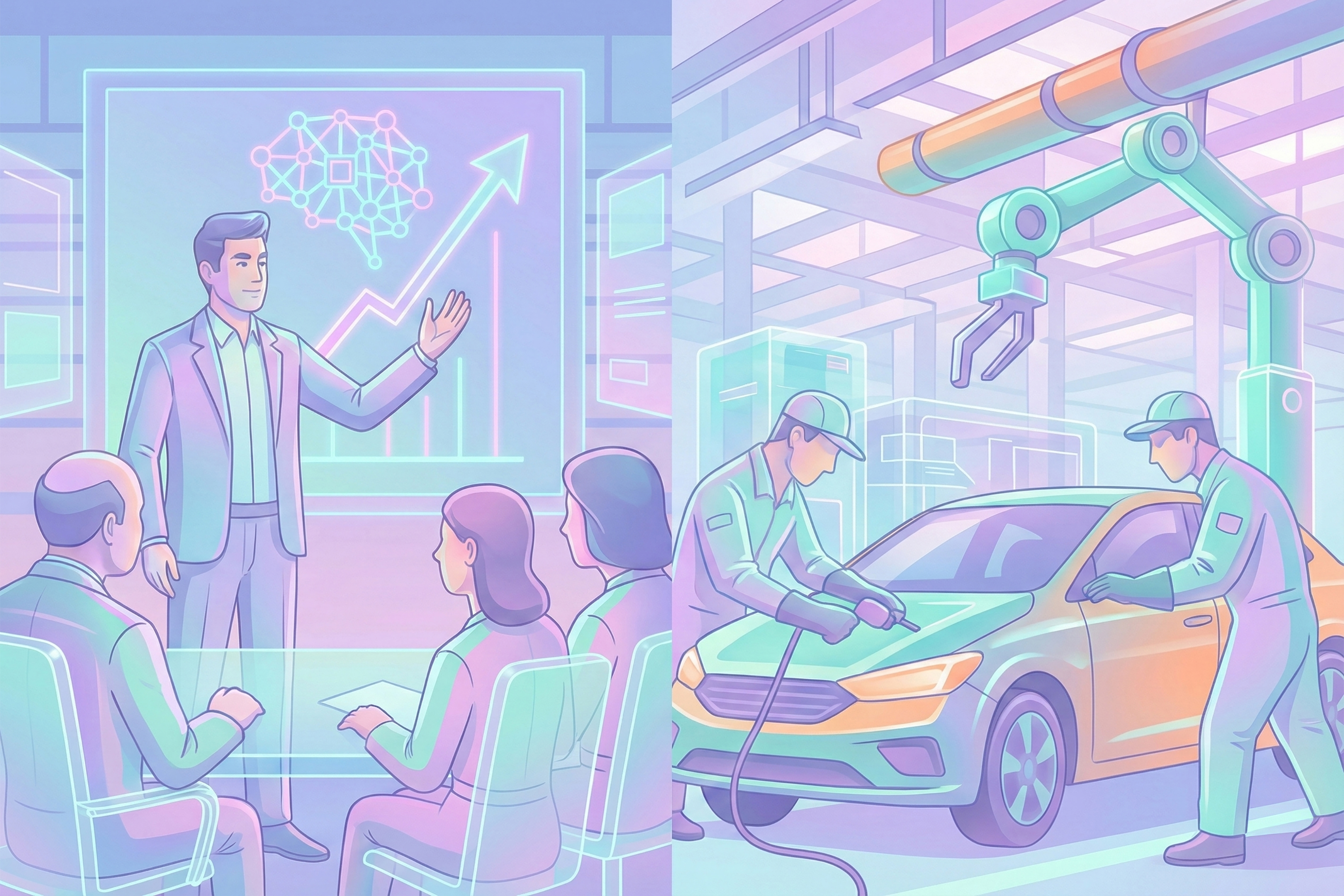
In his popular but controversial book Bullshit Jobs, anthropologist Andrew Graeber argues that many employees are trapped in useless jobs that don’t really add anything to society or the economy. Based on two polls in the U.K. and the Netherlands, Graeber claims that about 40% of workers feel this way about their own job. These numbers are probably overstated (recent EU-wide research suggests 3-14% of workers are unsatisfied), but Graeber’s overall argument is nevertheless interesting in relation to the digitization of the workplace.
According to Graeber, bullshit jobs have resulted from the shift of jobs in manufacturing to services and, moreover, the rise of so-called “information work”. That is, many jobs in the service sector are truly “useful” (e.g. those of nurses and barbers), but since the early days of automation and robotization, most of the new service jobs have solely dealt with information (e.g. administrators, HR departments or consultants) and according to Graeber most of these are quite useless. This is clearly overstated; most information workers actually fulfil crucial roles in support of those who perform “proper work” (in manufacturing for instance). Nevertheless, as these workers are not directly involved in value creation (monetary or socially), one can imagine that these employees don’t always feel useful.
Interestingly, the kind of information work at which Graeber takes aim, is precisely the kind of work that may be taken over by smart systems. These jobs typically entail computers that still require human operators and smarter IT systems will render those employees unnecessary (possibly putting an end to Solow’s productivity paradox), which may redirect them to even more “useless” jobs. At the same time, smarter systems (like those used by Amazon) will track the productivity of individual employees and single out the truly useless ones. While they could proliferate in a high-friction economy, their jobs will be lost in non-friction in the future.

